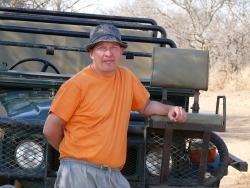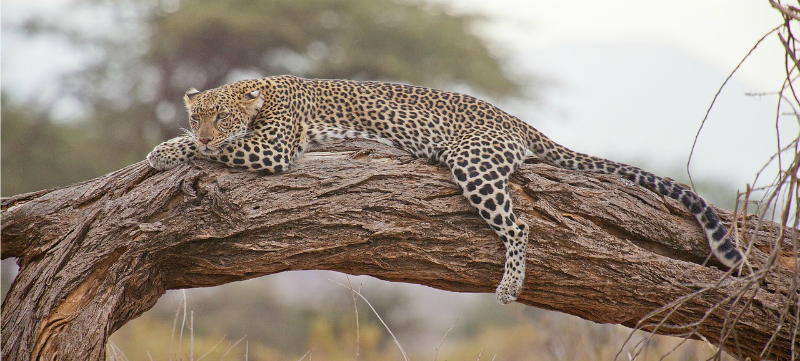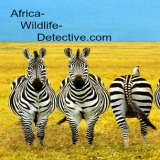"Each species is a masterpiece, a creation assembled with extreme care and genius."
-E.O. Wilson.
My name is Chris Wasserman. I am the owner of this site.

I appreciate this opportunity to share my passion about African wildlife by using my knowledge and experience gained from going on African safaris to create this website.
I hope to grow this site into a place that can inform and educate people about the wonders of African wildlife. This is my attempt to provide a resource for conservation and public awareness about our endangered African animals and why we should all fight to protect them.
The dawning of the Internet age
I live in sunny South Africa and I earn my living from being a professional accountant and auditor. When I became a chartered accountant in the early 1990s computers were expensive mainframes owned only by very large businesses.
Today the Internet has changed the nature of work totally so that we have more freedom about where and how we want to work.
This is because you are likely to find the hottest and latest technology on the desk of an entrepreneur sitting in his home office.
Do you agree that it better to be amongst African Wildlife and the sound of the African bush, than amongst city traffic and noise.
Because I wanted experience with the largest Enterprise Resource Planning software company in the world (SAP R/3), I had no choice but to work at big corporate enterprises like Unilever and South African Airways.
Since that time, the internet has transformed our lives. We are living in a time where we can use the power of
wildlife imagery to inspire the world to discover, value and protect
our wildlife.
Look at this amazing video of an Osprey fishing for its prey.
Now if that type of sight do not fill you with a sense of wonder and amazement you have probably landed on the wrong website.
Why a site about African wildlife?

Born in Namibia and growing up in South Africa I have always been surrounded by African wildlife in our many nature reserves and game parks.
I have been interested in nature and wildlife for as long as I can remember and I love to spend as much time as I can in the African bush.
Wildlife conservation is very important to me and I am passionate about preserving our wildlife heritage for future generations. If current trends continue Africa will lose a significant proportion of its remaining wildlife during this century.
There is nothing that gets me angrier than seeing one of our rhinos with half its face cut off because of sheer greed.
I have always been intrigued by African wildlife questions like:
How do predators plan and co-ordinate their hunts?
Why do black rhinos have such bad tempers?
How is the body of a cheetah designed for speed?
How do giraffes fight for dominance?
Why do lion males kill young cubs?
Why do lions have manes? etc
Over the years I managed to do find answers to many of my questions by through studying the work of wildlife experts and doing several courses, which were aligned with the curricula set by the Field Guides Association of Southern Africa.
These courses usually combined lectures from the wildlife experts with field trips to various nature and game reserves.
Some of the things I learned over this time included:
- Bush survival and navigation and how to live of the land.
- How to identify the basic physical characteristics, social and feeding habits, habitat and distribution of the common species of mammals.
- Identifying how animal communicate as well as interpretation of field signs such as animal tracks.
- Conservation management practices and following of the latest conservation issues.
- Ecology, which explores the links between the environment, human society and conservation.
- Understanding taxonomy systems, used for naming and classifying species that reflects the order and the diversity of animal life.
- How to identify trees and grasses, interesting facts about medicinal uses and traditional beliefs associated with specific trees.
- How to identify and differentiate the prominent and common bird species and their calls as well as their behavior, ecological roles, habitat selection and distribution.
- Basic ecology teaches one about the interrelationship between rocks, soil, climate, vegetation and animals.
- How night skies are an important part of an African nature experience and how to identify the most common constellations and prominent stars.
- Principles of game farm economics and good ecological and financial management.
- Role of ecotourism in the economic upliftment of communities surrounding protected areas.
- Know what the aims of nature guiding are and understanding what a professional nature guide does.
- Obtaining an understanding of guiding ethics and how to conduct an ethical guided experience.
We are passionate about connecting people with the natural world and want to ensure more people experience and are inspired by African wildlife.
Hopefully many of you will join us in our mission to do everything we can to protect them.

